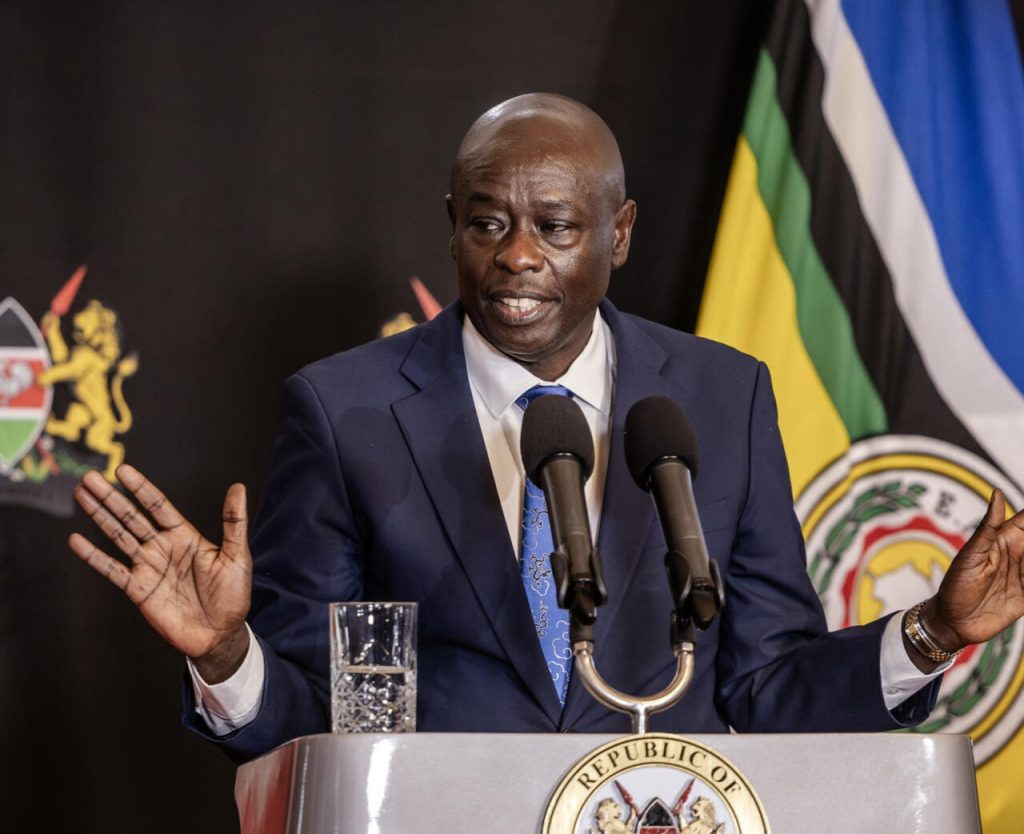Kenya’s Deputy President, Rigathi Gachagua, has officially filed a petition with the Court of Appeal, aiming to suspend ongoing impeachment proceedings against him in the High Court. This legal maneuver comes after Gachagua’s team expressed concerns about the validity of recent rulings and the legitimacy of the three-judge panel overseeing his case.
The impeachment proceedings stem from allegations against Gachagua, but his legal representatives, led by attorney John Njomo, argue that the situation is marred by procedural irregularities. Specifically, they claim that Deputy Chief Justice Philomena Mwilu exceeded her authority by appointing the three judges—Justices Eric Ogola, Anthony Mrima, and Frida Mugambi—without the necessary approval from Chief Justice Martha Koome.
In the petition, Gachagua’s team asserts that according to Kenya’s Constitution, only the Chief Justice has the authority to assign judges. They cite various articles, including Articles 25, 27, 47, 48, 50(1), and 260, to support their argument that the appointment process violated constitutional provisions. Gachagua’s legal team believes that the improper assignment of judges represents a fundamental error in the judicial process.
However, last week, the three-judge panel upheld the legitimacy of Mwilu’s actions. Justice Mrima defended the appointment, stating that the Deputy Chief Justice has the authority to temporarily perform the Chief Justice’s administrative duties when necessary. He explained, “The Chief Justice’s role in assigning judges, as an administrative function, may be carried out by the Deputy Chief Justice if the CJ is unable to fulfill it.”
With the ongoing proceedings in the High Court, Gachagua is now appealing to the Court of Appeal for an injunction to halt the impeachment process until his legal arguments can be thoroughly reviewed. The outcome of this appeal could have significant implications not only for Gachagua but also for the broader political landscape in Kenya.
As the situation unfolds, political observers are closely monitoring the developments. The impeachment proceedings have garnered public interest, highlighting issues surrounding governance, judicial authority, and political accountability. Gachagua’s case reflects deeper tensions within Kenya’s political framework, particularly as the Deputy President seeks to navigate these challenges while maintaining his position in government.
The implications of this legal battle extend beyond Gachagua’s immediate future. Should the Court of Appeal decide in his favor, it may set a precedent regarding the appointment of judges and the authority of the Deputy Chief Justice. Conversely, if the High Court’s proceedings continue unimpeded, it could signal a shift in how political figures are held accountable in Kenya.
As Kenyans await the Court of Appeal’s decision, the atmosphere remains charged with uncertainty. Gachagua’s legal team is poised to argue vigorously for the suspension of the impeachment proceedings, while the government and opposition parties watch closely for any shifts in momentum. The outcome of this case may very well shape the political landscape in the lead-up to future elections and influence public confidence in the judicial system.
In the meantime, Gachagua has reiterated his commitment to serving the people of Kenya, despite the challenges posed by the impeachment proceedings. He emphasizes that he is dedicated to addressing the needs of his constituents and fulfilling his duties as Deputy President, regardless of the legal hurdles he faces.
As this story develops, it underscores the intricate interplay between law and politics in Kenya, reminding citizens of the importance of due process and the rule of law in a democratic society.







